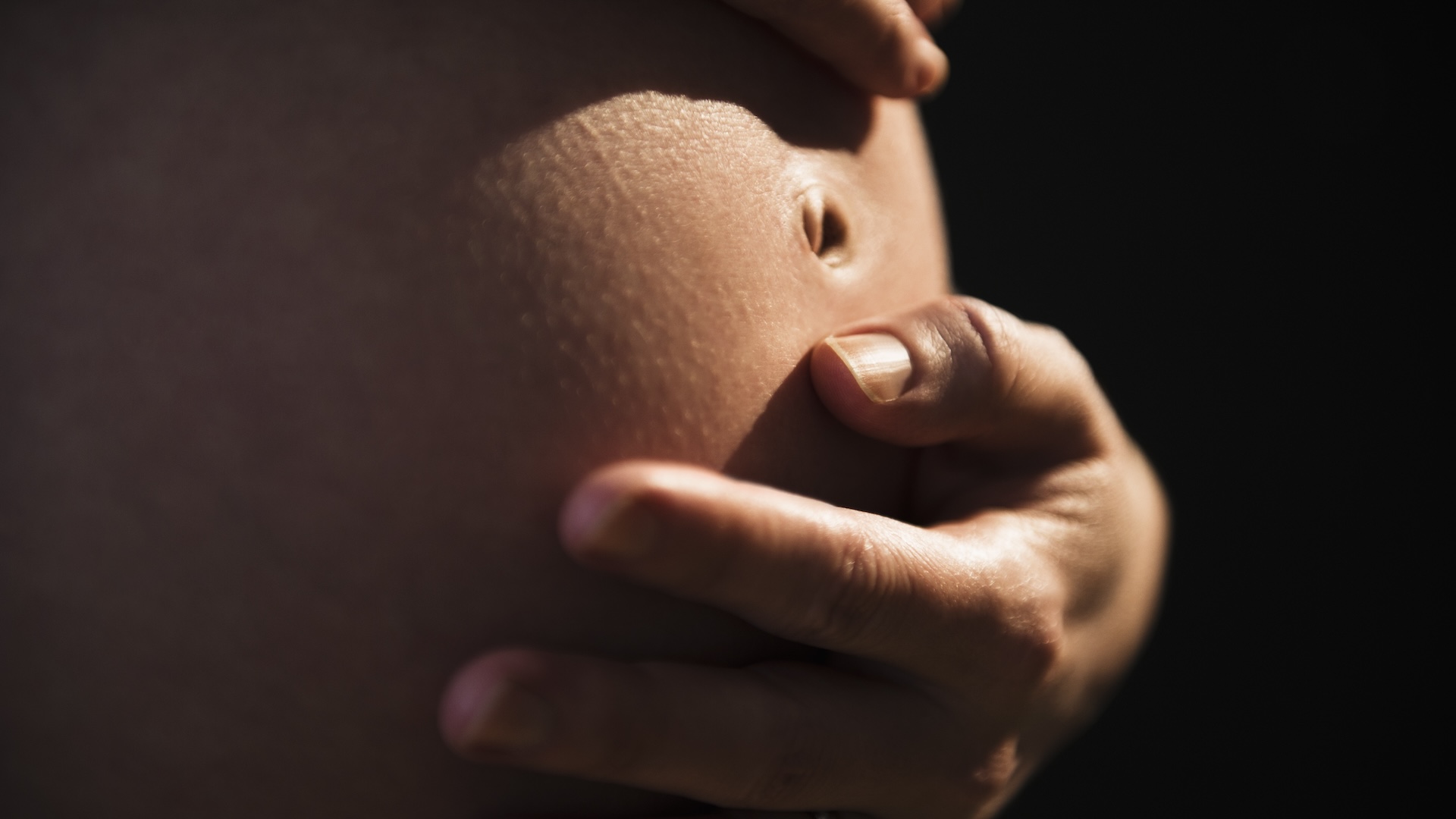Diagnostic dilemma: Teen's improbable pregnancy occurred after oral sex
A teen girl with abdominal pain learned she was pregnant and had conceived under extremely unusual circumstances.

The patient: A 15-year-old girl in Lesotho, Southern Africa
The symptoms: In 1988, a teen visited the hospital with intermittent and acute abdominal pain. An examination revealed that she was about nine months pregnant — but she said she had been unaware of the pregnancy. Her uterus was contracting at regular intervals and the fetus was oriented with its head downward in the birth canal.
What happened next: When emergency room doctors inspected the patient's vulva, they found no vaginal opening. Instead, there was a skin-covered shallow indentation between her labia minora — the vulva's inner lips — and below her urethral meatus, the external opening of the urethra that transports urine out of the bladder. This rare condition, in which the vaginal opening is absent or closed, is known as distal vaginal atresia and affects an estimated 1 in 4,000 to 10,000 newborn females.
Doctors gave the patient spinal anaesthesia and performed an emergency cesarean section (C-section), delivering a healthy baby boy weighing 6.2 pounds (2.8 kilograms), according to a report of the case.
Examination of the patient after her delivery revealed that her uterus terminated in a vagina that was just 0.8 inches (2 centimeters) deep, according to the case report. (Vaginal depth is typically 2 to 4 inches (5 to 10 cm) but can extend up to 8 inches (20 cm) during arousal.)
The diagnosis: The patient had previously visited the same emergency room 278 days, or just over nine months, earlier, after a man stabbed her in the upper abdomen. The knife had penetrated her abdominal wall and created two wounds in her stomach. At the time, doctors treated her injuries and discharged her from the hospital.
Months later, as the patient was recovering from the cesarean operation, she told a nurse that the attack occurred when an ex-lover had found her fellating her new boyfriend. The doctors concluded that, after the patient was stabbed, sperm she had swallowed migrated to her reproductive organs through the tears in her digestive tract, thus causing her pregnancy.
Get the world’s most fascinating discoveries delivered straight to your inbox.
The treatment: The patient's recovery was uneventful, and she and her boyfriend ultimately accepted the circumstances of the child's conception, the report added. A few years later, the boy visibly resembled his father — the man she had been fellating at the time of the attack — a fact that "excludes an even more miraculous conception," the emergency room physician wrote.
What makes the case unique: Fertilization typically occurs after sperm is introduced to the female reproductive system through the vagina. Environments that are highly acidic, such as the gastrointestinal tract, are inhospitable to sperm. However, saliva is lower in acid than other parts of the digestive system.
Acidity is measured by the pH scale, which runs from 0 to 14 — the lower the number, the more acid is present. The stomach is acidic, with a pH of 1.5 to 3.5. Saliva typically has a pH of 6.7, on average, which is close to neutral. This could explain why the sperm in this case was still viable after being swallowed, according to the report.
What's more, when people are malnourished, the digestive system becomes less acidic and more alkaline, the doctor wrote. The patient was underfed at the time of the knifing, which may have provided a more hospitable environment for the swallowed sperm as it traveled from her digestive system and passed through the knife wounds in her stomach to enter her uterus, the doctor theorized in the report.
This article is for informational purposes only and is not meant to offer medical advice.

Mindy Weisberger is a science journalist and author of "Rise of the Zombie Bugs: The Surprising Science of Parasitic Mind-Control" (Hopkins Press). She formerly edited for Scholastic and was a channel editor and senior writer for Live Science. She has reported on general science, covering climate change, paleontology, biology and space. Mindy studied film at Columbia University; prior to LS, she produced, wrote and directed media for the American Museum of Natural History in NYC. Her videos about dinosaurs, astrophysics, biodiversity and evolution appear in museums and science centers worldwide, earning awards such as the CINE Golden Eagle and the Communicator Award of Excellence. Her writing has also appeared in Scientific American, The Washington Post, How It Works Magazine and CNN.
You must confirm your public display name before commenting
Please logout and then login again, you will then be prompted to enter your display name.


